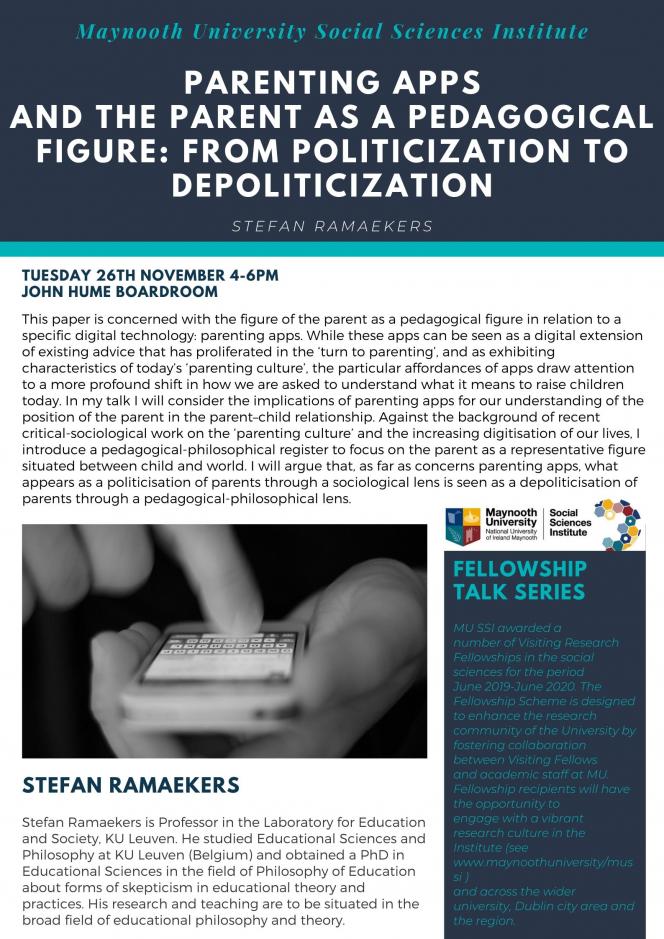

Refreshments will also be served.
My concern in this paper is with the figure of the parent as a pedagogical figure in relation to a specific digital technology – parenting apps. While these apps can be seen as a digital extension of existing information and advice that has proliferated in the so-called ‘turn to parenting’, and as exhibiting many of the characteristics of today’s ‘parenting culture’, the particular affordances of apps draw attention to a more profound shift in how we are asked to understand what it means to raise children today. This is so particularly if we focus on the representational dimension of the figure of the parent, i.e. on the fact that a parent is always situated between her child and some form of communal life, which she, inevitably, represents. In my talk I will consider the implications of parenting apps for our understanding of the position of the parent in the parent–child relationship. The background to my discussion is recent work in the critical sociological literature on the ‘parenting culture’ and the general increasing digitisation of our daily lives. I will briefly summarize these analyses to show how parenting apps can indeed be seen as an extension of the instrumentalisation, scientisation and psychologisation identified in the parenting culture. My main aim, however, is to introduce a pedagogical-philosophical register, one informed, in particular, by Stanley Cavell’s account of initiation in forms of life. This philosophical register will enable me to bring out the political aspect of the figure of the parent as a representative figure situated between child and world. With reference to a selection of apps aimed at the period from pregnancy to three years old, I illustrate how, while sharing similarities with existing sources of information and advice for parents, parenting apps are distinctive due to the personalisation, visualisation and notion of community they offer. Hence, what appears as a politicisation of parents through a sociological lens is seen as a depoliticisation of parents through a pedagogical-philosophical lens.
